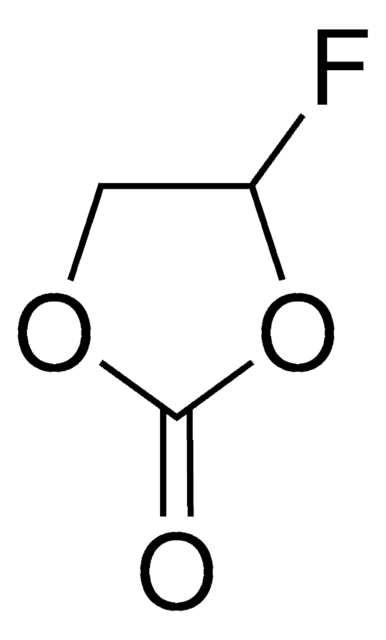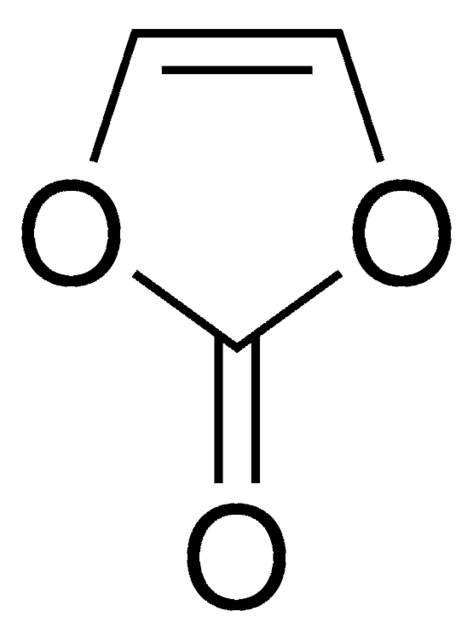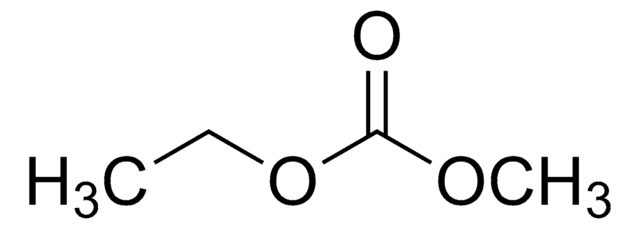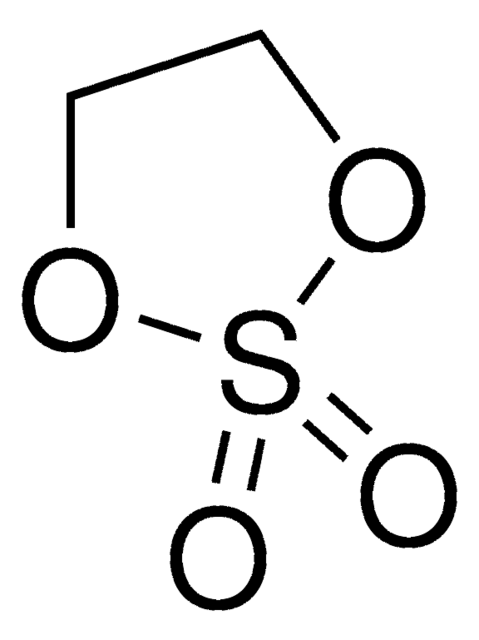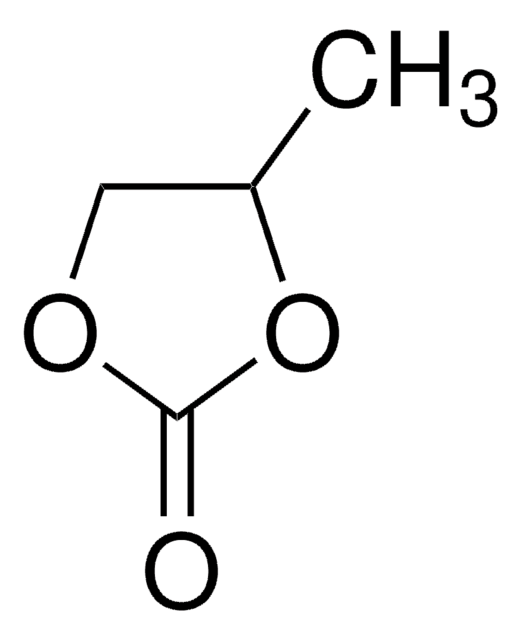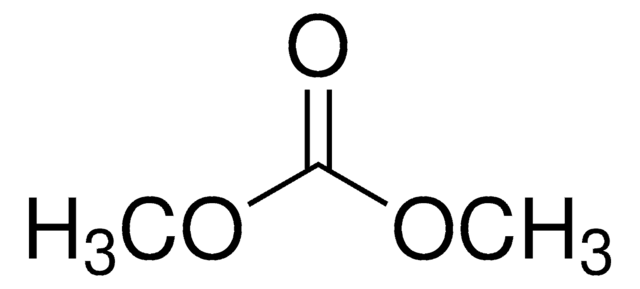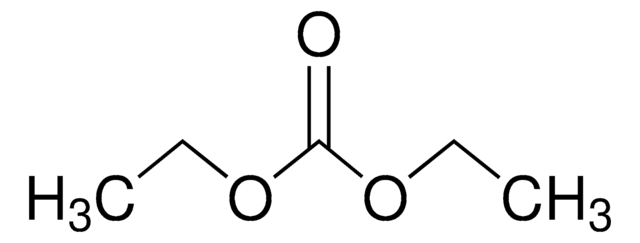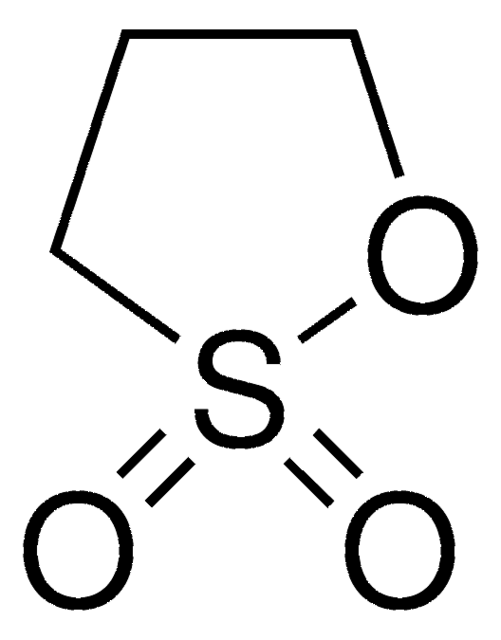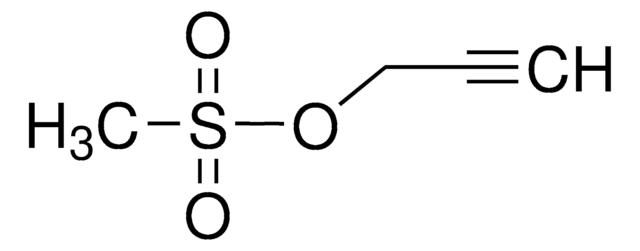901686
Fluoroethylene carbonate
battery grade, ≥99%, acid <200 ppm, anhydrous
Sinônimo(s):
4-Fluoro-1,3-dioxolan-2-one, FEC
About This Item
Produtos recomendados
grau
anhydrous
battery grade
Ensaio
≥99%
forma
liquid
Impurezas
≤100 ppm H2O
≤200 ppm acid
pb
212 °C
pf
18-23 °C
densidade
1.485 g/cm3
aplicação(ões)
battery manufacturing
cadeia de caracteres SMILES
FC1COC(=O)O1
InChI
1S/C3H3FO3/c4-2-1-6-3(5)7-2/h2H,1H2
chave InChI
SBLRHMKNNHXPHG-UHFFFAOYSA-N
Procurando produtos similares? Visita Guia de comparação de produtos
Descrição geral
Aplicação
Características e benefícios
✔ Improves Battery Safety
✔ Enhances Battery Performance
✔ Versatile Electrode Compatibility
Atenção
- These electrolyte solutions have extremely low water content; please handle under inert and moisture free environment (glove box).
- Keep containers tightly closed. Keep away from heat and ignition sources. Store in a cool and dry place. Avoid storing together with oxidizers.
Informações legais
produto relacionado
Palavra indicadora
Warning
Frases de perigo
Declarações de precaução
Classificações de perigo
Acute Tox. 4 Oral - Eye Irrit. 2 - Skin Irrit. 2 - Skin Sens. 1
Código de classe de armazenamento
10 - Combustible liquids
Classe de risco de água (WGK)
WGK 1
Ponto de fulgor (°F)
Not applicable
Ponto de fulgor (°C)
Not applicable
Escolha uma das versões mais recentes:
Certificados de análise (COA)
Não está vendo a versão correta?
Se precisar de uma versão específica, você pode procurar um certificado específico pelo número do lote ou da remessa.
Já possui este produto?
Encontre a documentação dos produtos que você adquiriu recentemente na biblioteca de documentos.
Os clientes também visualizaram
Conteúdo relacionado
Batteries, fuel cells, and supercapacitors rely on electrochemical energy production. Understand their operation and electron/ion transport separation.
Nossa equipe de cientistas tem experiência em todas as áreas de pesquisa, incluindo Life Sciences, ciência de materiais, síntese química, cromatografia, química analítica e muitas outras.
Entre em contato com a assistência técnica